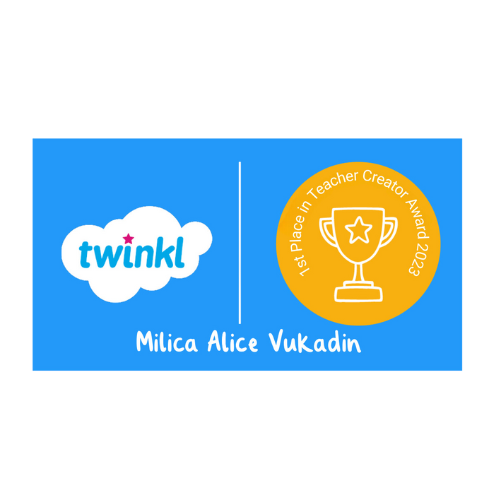Why is music important? Is it useful just in the warm-up part of the lesson, or it can be the focus of our lesson? Keep reading to find out how I facilitated an engaging music workshop. Let’s see what is learning English through music all about!
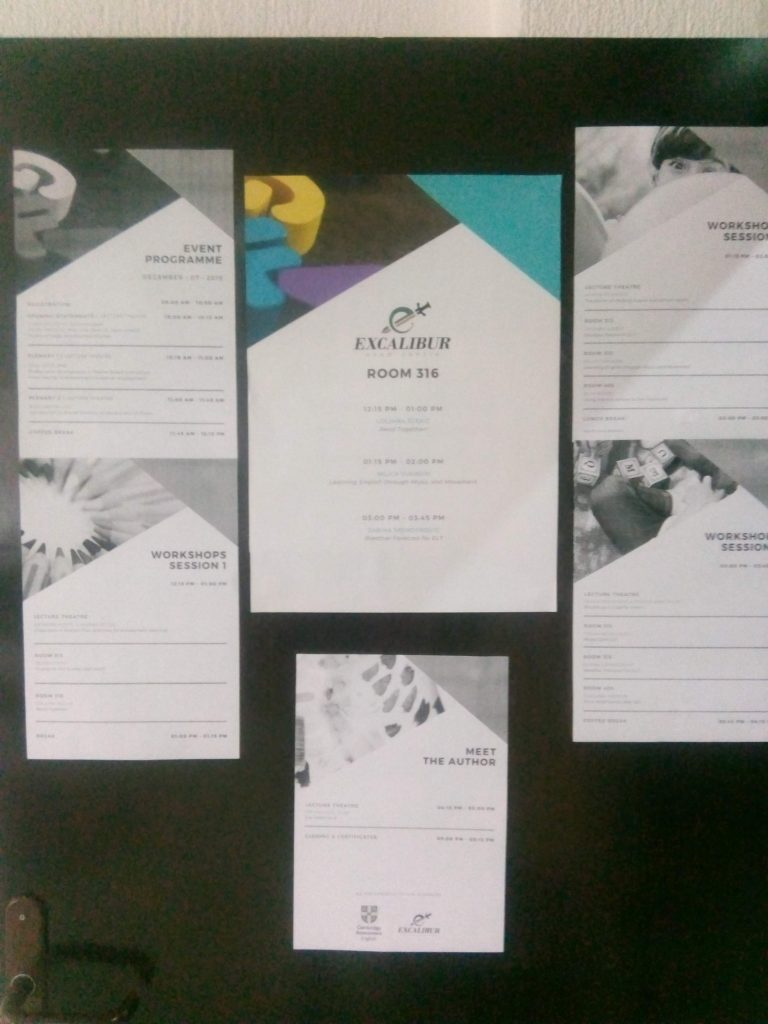
I’ve had the pleasure to facilitate a workshop on ELTA YL SIG Day: Game on! Engaging Young Learners conference. I will write a reflection about the conference and other workshops I attended in a separate post. This post is a reflection focusing on the activities we did, what went wrong and what was good.
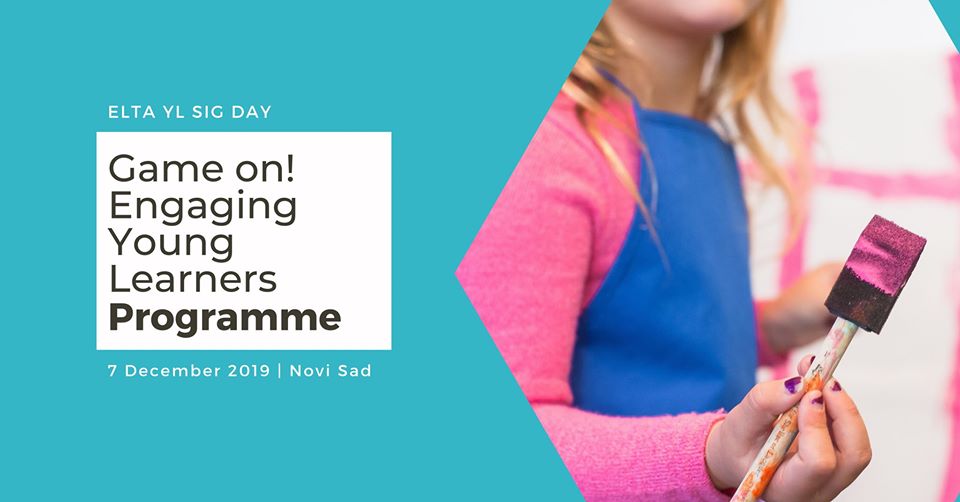

Since the connection to theory and interactivity are the most important things for me when It comes to professional development, we started the workshop by discussing the benefits of music for young learners. I decided to separate the development benefits from language learning benefits to showcase that music is very beneficial in general, not just in the ESL classroom. Sadly, I completely forgot my password to Mentimeter, so the participants didn’t see the results – I only read it to them.
Here are their associations with the benefits of using music with very young learners:
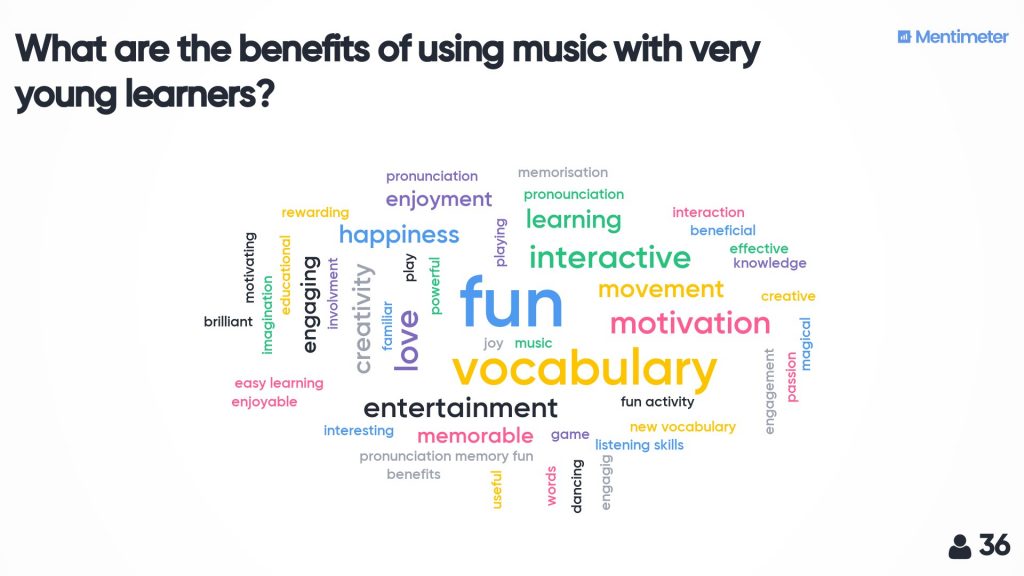
After sharing the participants’ associations, I briefly explained what research says about the benefits of learning English through music. Song selection checklist and activities to engage students and recycle vocabulary came right after the benefits.
I presented the steps of effective scaffolding, which led me to post the two most important questions in this workshop:
- How to expand songs into projects?
- How to use songs in early literacy instruction?
Here are the short summaries of the full lesson plans with projects. I plan to write a full post about every activity as soon as I catch a breath.

Activity 1: Food orchestra – Are you hungry?
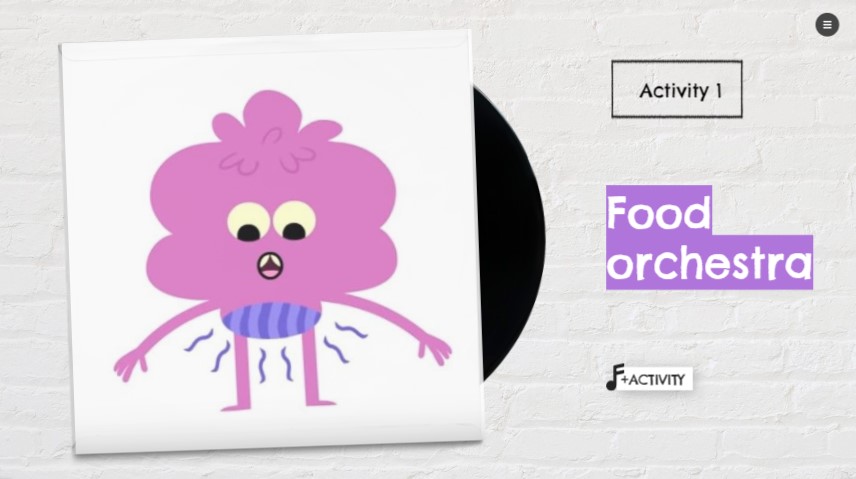
Activity 1 includes drawing feelings when we are hungry, and flashcard games to see what is ”missing” and learn vocabulary. This activity also includes singing with movements, playing the keyboard to learn the song step by step, and dramatizing. It ultimately develops into a rhythmical orchestra. There are also ideas for additional activities.
Activity 2 – The cookie thief – TPR and eat it!
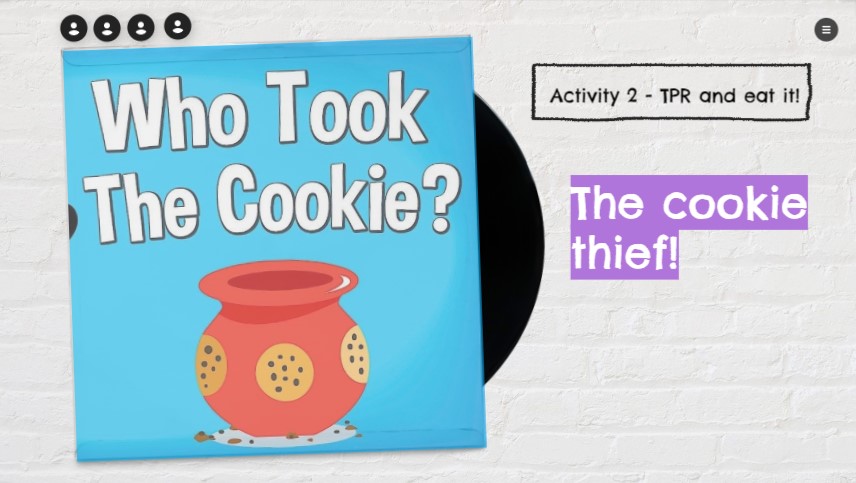
The activity starts with demonstrating the action verbs, using realia, changing the tempo and volume of the game, and finally making a recipe, translating it and creating real cookies + other additional activity ideas. You can see the picture with the Cookie thief game we played in the workshop.
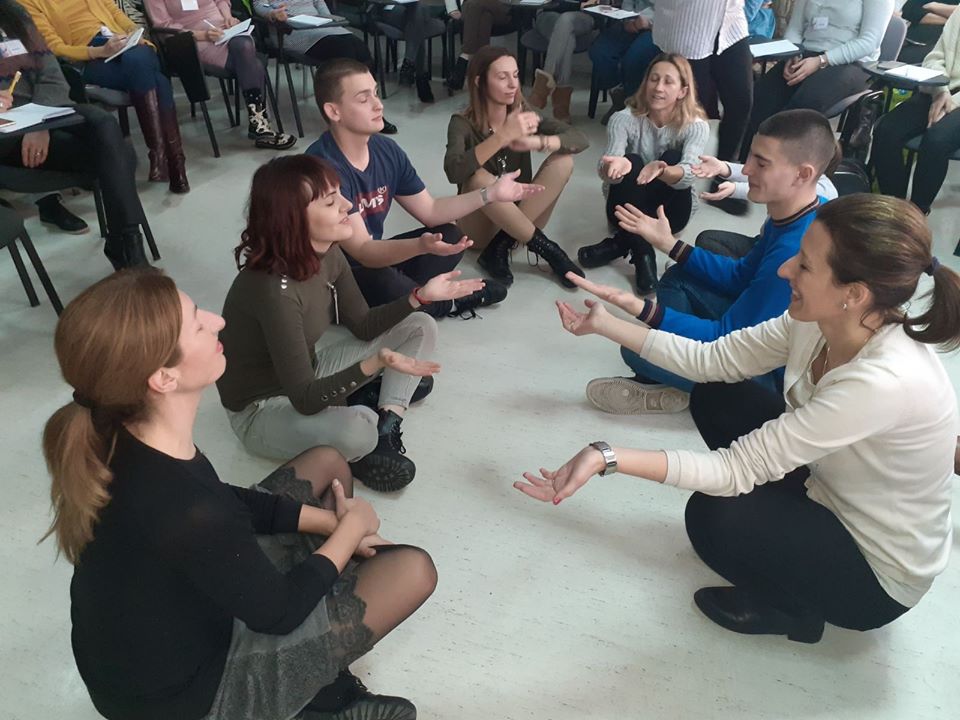
Activity 3- Music is physics – London Bridge is Falling Down
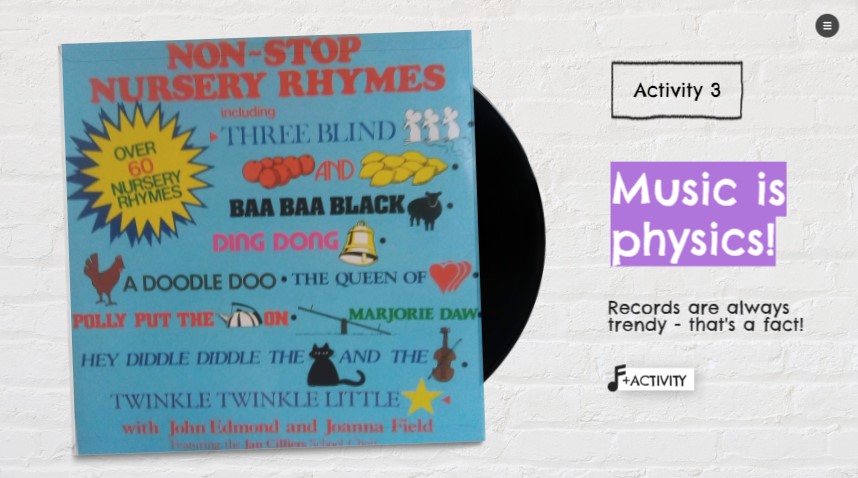
This amazing activity is an example of how can we start with a song, develop it into storytelling and finish off with a project. I used a vinyl and record player to connect science and how is music created with the London Bridge is Falling Down. Learn the song step by step, read a letter the Fair Lady wrote to Mother Goose, and finally, build bridges outside, monitor what happens when it rains and discover different materials!
Expanding the learning in the workshop beyond the conference
To expand the learning beyond the classroom, I shared a list of academic references I used to make the activities, as well as a Padlet board. I invited everyone to share one activity he or she brainstormed during the workshop. The goal was to create a collaborative board with activities we can all use right away in our classroom.
Here are some of the materials from the workshop as well as the drawings the participants draw. The task was to draw how do you feel when you are hungry or to draw the ‘hungry’ feeling. 🙂
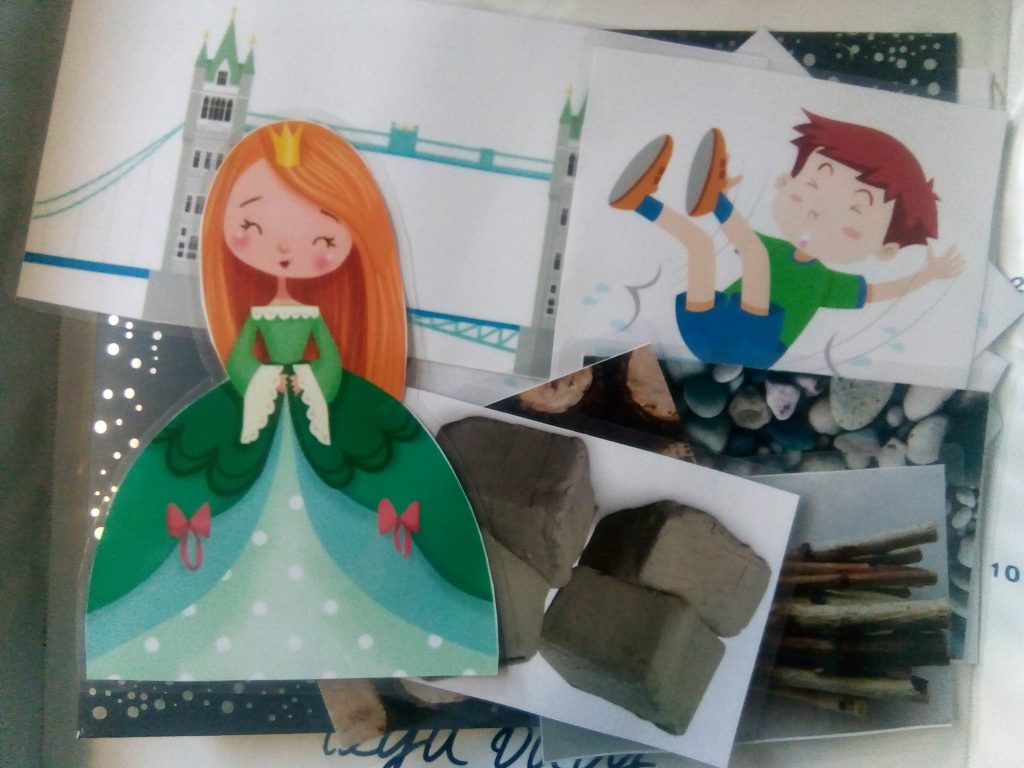

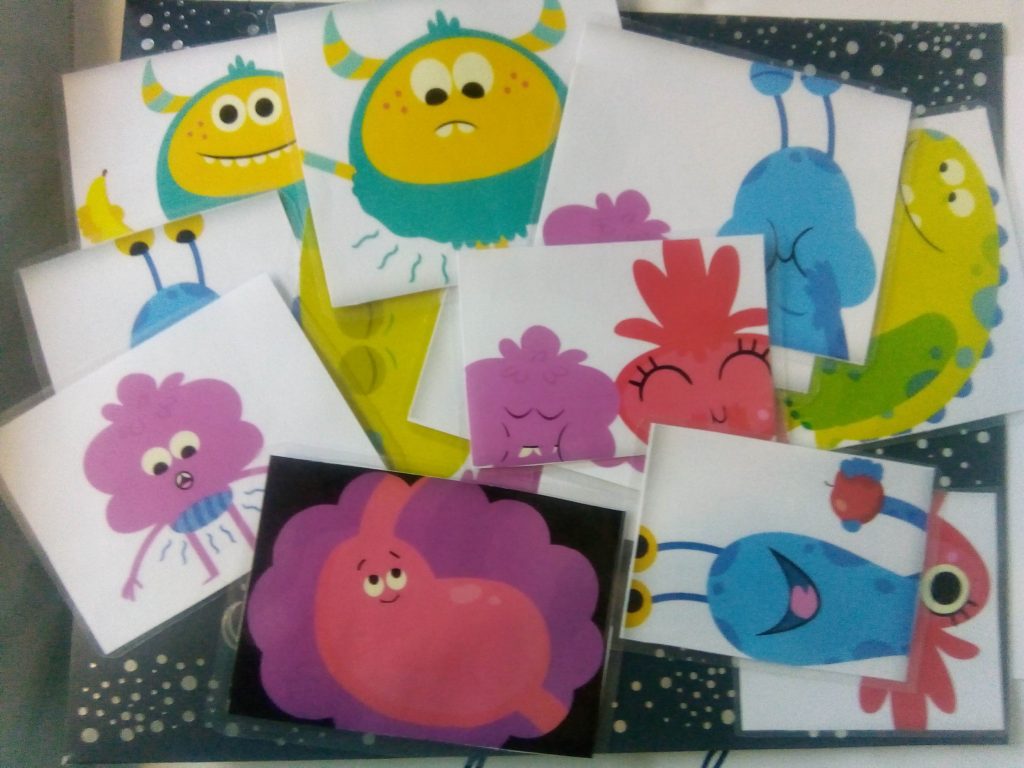
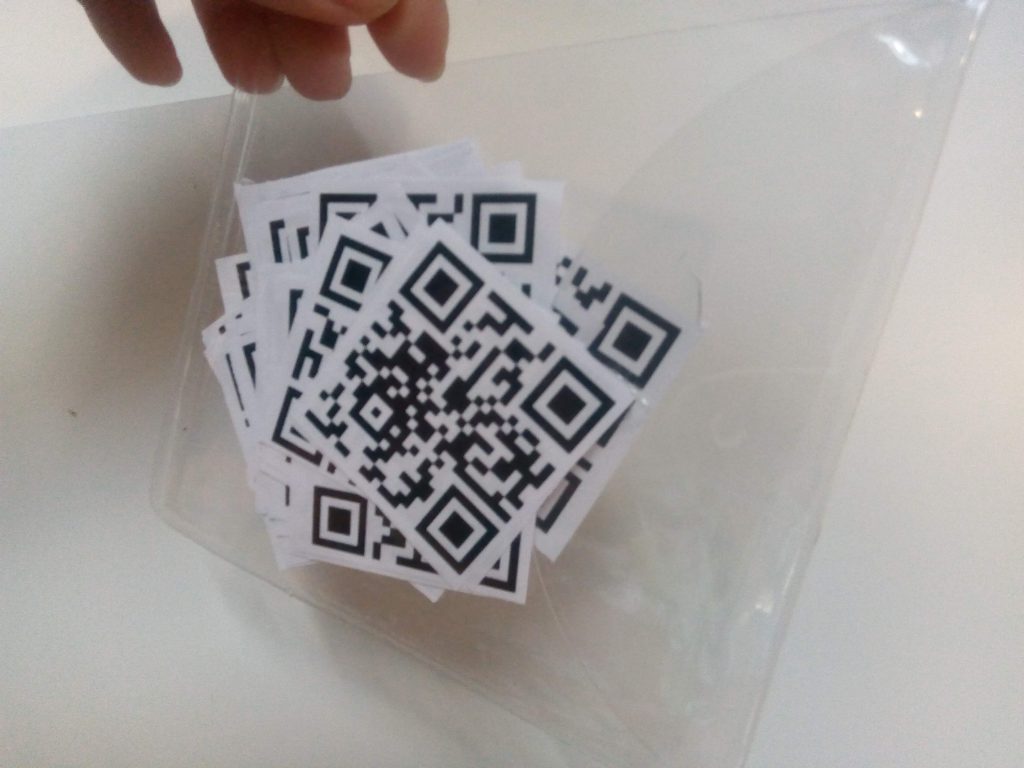
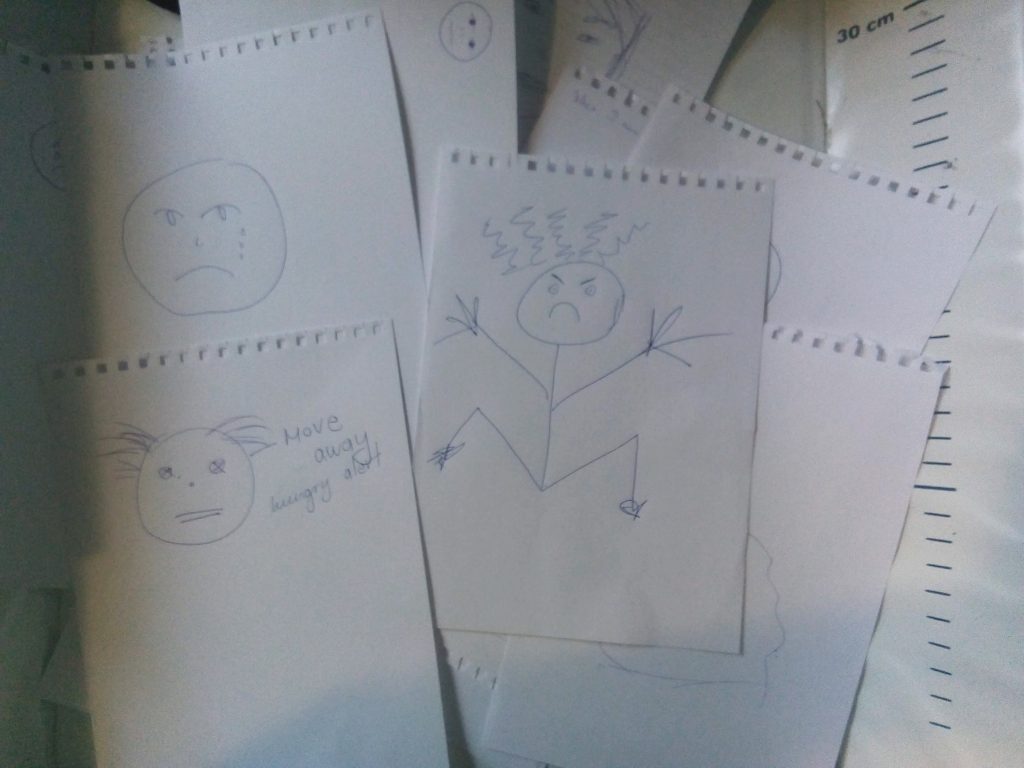

To conclude
Since we should all aim to be reflective practitioners and follow the post-method pedagogy, I appreciate it when I am offered further reading resources. This presents a chance to revise the content, so I believe that the participants can benefit from the additional resources I shared.
Have you ever considered taking the music in your classroom or home a step further and developed a whole project around it? Do you believe that music can promote early literacy instruction in young learners? Write in the comments what do you think about learning English through music!


